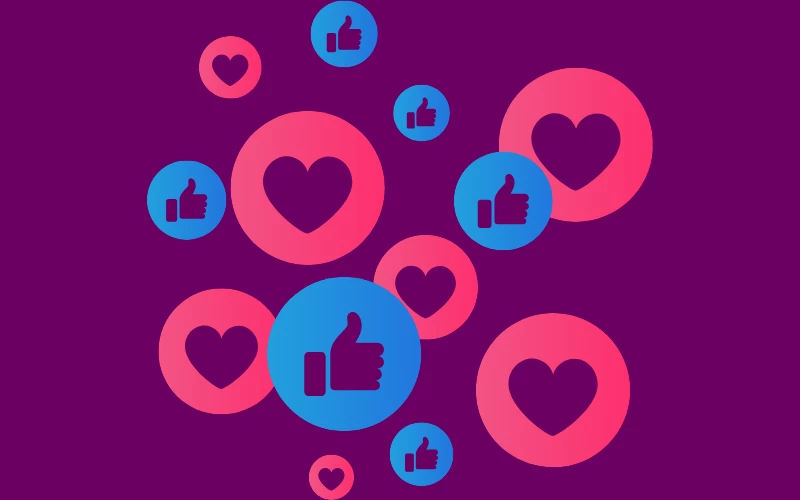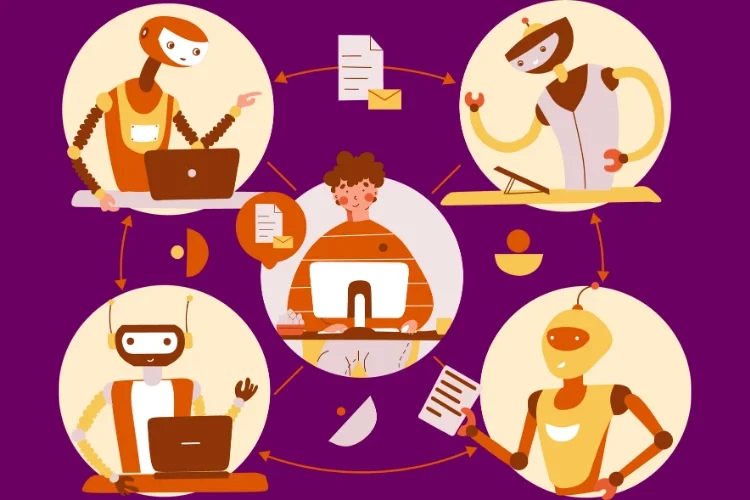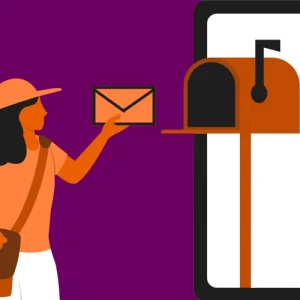Managing social media can become stressful, especially as platforms change and require more engaging, consistent content. Because of this, social media automation tools are incredibly useful. These tools not only help you build your presence, but they also make scheduling, posting, and analytics easier, saving you time. In 2025, a new wave of automation tools will emerge, altering how corporations and creators approach their social strategies. These are the top tools you should investigate if you want to keep ahead and simplify social media management.
Table of contents
What Is Social Media Marketing Automation?
Social media marketing automation tools streamline repetitive tasks such as post scheduling, performance analysis, and engagement with followers. As a result, they simplify management and save time for more strategic efforts.
This includes the following:
- Scheduling: Automating content posts to ensure continuous engagement, which is essential for keeping your audience interested.
- Content Curation: Automatically identifying and sharing relevant content, allowing you to keep your feed fresh without spending hours searching.
- Engagement: Creating automated responses to messages and comments. However, there’s still room for human interaction to ensure authenticity when necessary.
- Analysis: involves tracking metrics such as reach and engagement. As such, data-driven insights help you improve your campaigns.
- Reporting: Creating performance reports that help guide decisions and allow you to adjust your strategy over time.

The Benefits of Using the Best Social Media Automation Tools
Automating social media marketing has many advantages that make it a must-have tool for marketers. You should consider including it into your strategy for the following reasons:
- Saves Time and Effort: The best social media automation tools manage repetitive tasks, freeing up your schedule to concentrate on more important goals including strategy and creativity.
- Maintains Consistency: Automation ensures that your brand consistently delivers content, even when you’re not in the office, by planning ahead and scheduling in advance.
- Increases Engagement: Automated posting and timely responses help you to boost engagement by means of which you can easily engage at peak times and increase audience interactions.
- Provides Data-Driven Insights: Tools with solid analytics enable tracking of performance indicators and offer data-driven insights to guide decision-making.
- Enhances Efficiency: Automating tasks such as content creation, publishing, and monitoring helps you optimize your workflow, thereby increasing overall productivity.
- Improves Customer Service: Using tools that quickly and automatically respond to frequently asked questions helps you keep your customers satisfied.
- Enables Scalability: The best social media automation tools enable scalability, even as your brand continues to grow, making your social media presence more manageable.
- Strengthens Brand Presence: Consistent and active social media presence supports the credibility and brand identity you possess.
- Encourages Creative Strategy: Saving more time will allow your team to concentrate on developing fresh campaigns and creative strategies.
- Keep Tracks Competitors and Trends: Social listening tools help you stay ahead by revealing competitor strategies alongside relevant trends.

Risks and Pitfalls to Avoid When Using Social Media Automation Tools
Although automation is helpful, it poses certain risks and challenges. Understanding these potential risks and pitfalls will help you use these social media automation tools in a way that simplifies your strategies without compromising quality or engagement.
- Loss of Personal Touch: Being overly dependent on automation can make your interactions feel cold. Add human touchpoints to strike a balance.
- Risk of Automated Errors: Technical glitches or scheduling mistakes in automated systems can cause inconsistencies. Therefore, avoiding errors requires constant observation.
- Over-Reliance on Automation: Avoid the temptation to automate everything—some social media activities, like real-time interaction, call for a human approach.
- Missed Opportunities for Real-Time Engagement: Automation cannot replace sincere, natural interactions that actually connect with the audience.
- Challenges with Platform Changes: Social media platforms continuously update their algorithms and APIs, which could throw off automated procedures.
- Initial Setup Time and Costs: Although the initial setup time and expenses involved in choosing the best social media automation tools can be costly, the advantages surpass the initial time and money required.
- Need for Ongoing Monitoring: Automation tools must be monitored on a regular basis to make sure they are operating as expected and in line with current goals.
- Risk of Spamming: Automation should be used carefully to prevent sending too many posts, which could overwhelm or alienate your audience.
- Limited Creativity: Automation streamlines operational aspects but cannot replace the creativity required for effective campaigns.
- Lack of Flexibility: Should external circumstances change, pre-planned posts could seem irrelevant; always maintain some flexibility in your strategies.
Understanding these difficulties will help you properly apply the best social media automation tools to streamline your approach without compromising quality or interaction.

The Best Types of Social Media Automation Tools
Different tools offer various functionalities to streamline specific aspects of social media marketing. Here are some tools to explore:
1. ContentStudio
ContentStudio lets you easily create captivating content and track performance with tools for content discovery, AI-powered creation, scheduling, collaboration, analytics, and influencer outreach. Moreover, support is always available with a knowledge base and free live training.
- ContentStudio Pricing: Starting at $29/month, pricing is ideal for single users. In addition, enjoy 14 days of complete access; no credit card is needed.
- Integrations: Link social media platforms, including Facebook, Twitter, Instagram, and more. It is also compatible with widely used blog networks, including Wix, SquareSpace, Shopify, and WordPress.
2. Sprout Social
Developed specifically for businesses and agencies, Sprout Social is a versatile tool for social media automation. Post publishing and scheduling; social inbox management; customer care tools; advanced reporting and analytics; social listening; employee advocacy; team collaboration tools; CRM integration; and customizable inbox views are among its key features.
- Sprout Social Pricing: Plans start at $199 a month per user, you can also use their 30-day free trial without using a credit card.
- Integrations: Connect with more than 25 platforms—including big social networks, design tools, and helpdesk solutions.
3. Hootsuite
From one dashboard, Hootsuite allows users manage multiple accounts. Features such as post scheduling, content creation tools (AI writing and Canva), team collaboration, analytics tracking, audience interaction, and brand monitoring of key conversations. It provides a centralized inbox for handling correspondence as well.
- HootSuite Pricing: Get a 30-day free trial. Paid plans start at $99 for the Standard plan and rise to $249 for the Advanced plan.
- Integrations: Connect with more than 20 sites and apps—including Mailchimp, Notion, and Pinterest—with ease.
4. Buffer
Designed to assist users with social media scheduling, analytics, platform-specific customization, team collaboration, and an AI assistant for content drafting and optimization.
Buffer is a social media automation tool that also provides audience insights to improve social media strategies and tools like Start Page for building landing pages.
- Buffer Pricing: Enjoy a free plan or upgrade to paid plans starting at just $6/month per user. Additionally access a 14-day free trial to test all features.
- Integrations: Effectively integrates with all social media networks and other content creation sites, including Canva and Unsplash.
5. Sendible
Designed for individuals and agencies to safely manage several clients, Sendible is an all-in-one social media management tool.
The key features include post scheduling, centralized account management, client dashboards, collaboration tools, branded reports, and performance analytics. It provides content sourcing, automated reporting, and an AI assistant tool for content ideas as well.
- Sendible Pricing: Plans for individuals start at $29/month and agencies at $199/month. Enjoy a 14-day free trial—no credit card needed.
- Integrations: Seamlessly integrates with major social networks, WordPress, Google My Business, Canva, and more.
6. Zapier
Designed as a no-code automation tool, Zapier connects more than 8,000 apps to optimize tasks and build custom workflows, sometimes known as “Zaps.” Features including multi-step workflows, AI-powered recommendations, and data management tools let users automate tasks.
Perfect for tasks like email automation and social media management, Zapier provides scalability, dependability, and user accessibility across all skill levels.
- Zapier Pricing: Free for use for core features; premium plans start at $19.99/month.
- Integration: Over 8,000 apps supported.
7. IFTTT (If This Then That)
Using “Applets,” which link several apps and services, IFTTT (If This Then That) is a web-based tool that allows consumers to automate tasks. Built on the simple “if this, then that” logic, it triggers specific events-based responses.
IFTTT appeals to both simple and advanced users, with its user-friendly interface, vast app integrations, and features, including Webhooks. It provides a community-driven library of shared Applets for increased functionality.
- IFTTT Pricing: Free plan accessible for up to 2 applets. The Pro plan costs just $2.99 a month.
- Integrations: While it offers fewer options than Zapier, it is compatible with hundreds of apps.

How to Choose the Best Tools for Social Media Automation
Your team size, budget, and business objectives all play a role in choosing the best social media automation tools to use. Here a few things to think about:
- Determine the problems you want automation to help you solve.
First, list the particular tasks you want to simplify. Knowing your priorities will help you decide on the features you need in a tool whether they relate to content scheduling, data analysis, or audience interaction.
- Take into account the platform usage and preferences of your audience.
Select social media automation tools that work with the platforms that your target audience consistently uses. To make an informed decision, carefully observe their activity. Moreover, find a solution that can meet your changing needs with flexibility and scalability.
- Before committing, test tools using demos or free trials.
Examine features of several tools to be sure they fit your budget and satisfy your needs. Use free trials or demos to assess their overall fit for your business, usability, and functionality.
- Opt for tools that are scalable and can accommodate your future growth.
Small businesses and freelancers should focus on straightforward, affordable options, while larger organizations require robust platforms with advanced analytics and collaboration features. Start with affordable tools, test them extensively, and scale as your needs change keeping support and expenses in mind.
You can choose a social media automation tool that fits your objectives, budget, and growth strategy by following these steps.
Practical Tips for Evaluating Tools
1. Benefit from Free Trials
Many tools let you test out their features before committing by offering free trials or freemium plans. During the trial:
- Check the usability of scheduling tools.
- Review analytics dashboards for all-around understanding.
- Assess the responsiveness of customer service.
2. Read user feedback
Other user reviews can help you evaluate a tool’s dependability, strengths, and shortcomings. To get a realistic view, look for reviews from businesses similar yours.
- Platforms like G2 and Trustpilot allow thorough filtering to identify reviews fit your industry.
3. Compare Features Side by Side
Compare tools alongside one another and make a list of the features you must have. Note any additional tools that could ease up your workflow, such as:
- Unified inboxes for handling client correspondence
- Media organization and storage.
- Team collaboration custom workflows.
4. Consider Long-Term Value
If a more expensive tool provides better long-term advantages, occasionally it is worth the investment. Tools with integrated analytics, CRM capability, or extensive integrations, for example, may cost more but ultimately save you time and effort.
Final Thoughts
Social media automation tools are reinventing business operations by enabling marketers to accomplish more in less time. Your team will have more energy to focus on strategy, innovation, and genuine connections if you choose the appropriate tools and use them effectively.
Want to improve the way you appear on social media? Discover a world of time-saving opportunities by experimenting with the top social media automation tools today.






Leave a Reply